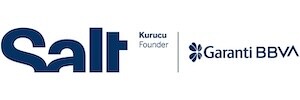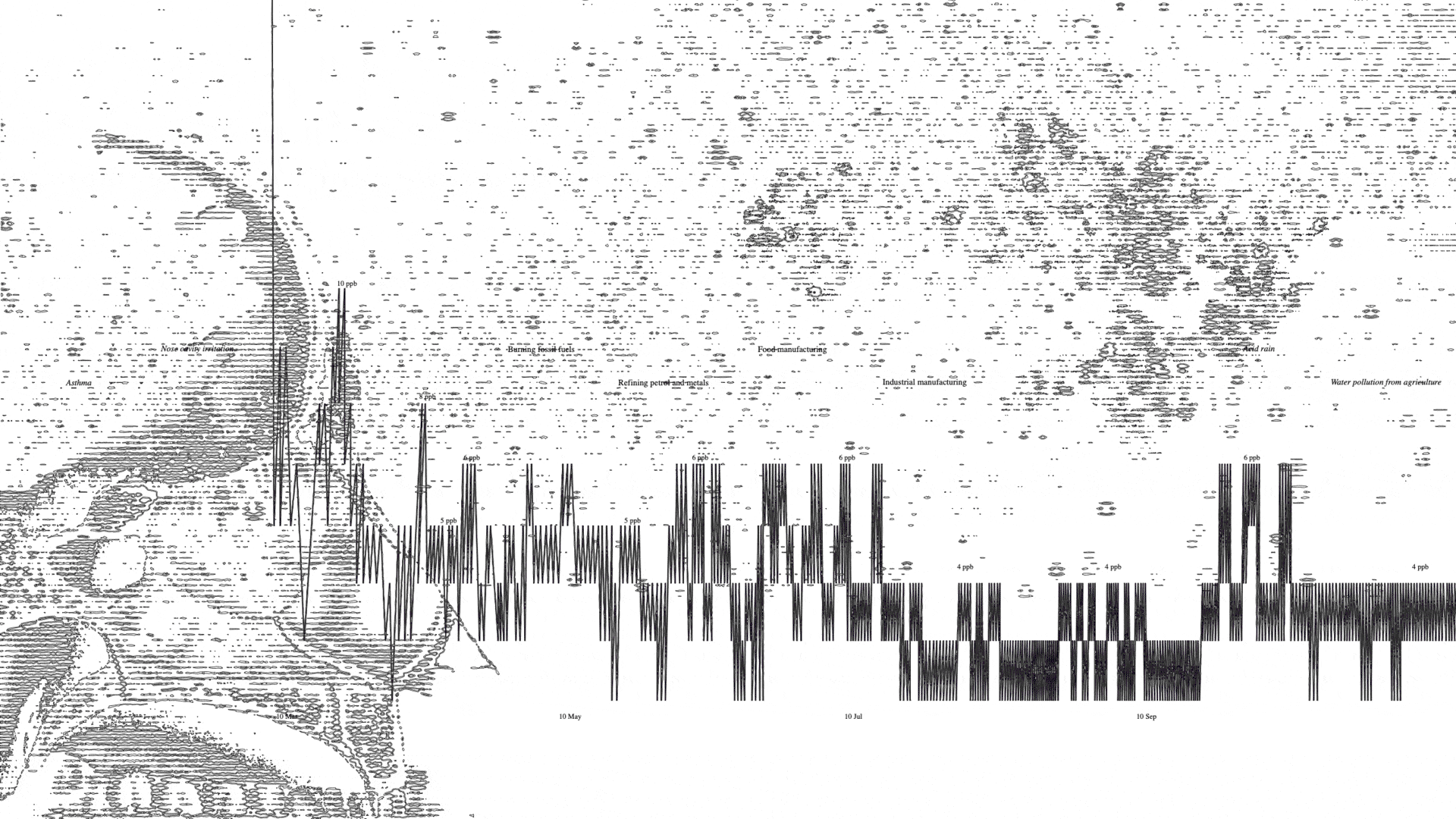Salt Beyoğlu
İstiklal Caddesi 136
Beyoğlu Istanbul
Turkey
Salt Galata
Bankalar Caddesi 11
Karaköy Istanbul
Turkey
Notes on Air by 2050+ at Salt Beyoğlu
May 8–August 18, 2024
Conceived and designed by the interdisciplinary design agency 2050+ for Salt Beyoğlu’s Forum, Notes on Air is an immersive installation that attempts to “give materiality” to air toxicity, employing a blend of material, sonic, and visual experiments. Through this aesthetic exploration, elements that are typically intangible provide an instance for an embodied, sensorial encounter.
The installation encourages visitors to engage with the materiality of air through a series of interventions. It explores not only the toxicity that permeates and travels through the air but also the intricate social and political ramifications it carries, the local and global traces it unveils, and the undeniable planetary interconnections it underscores. Foregrounding the fact that air is primarily a shared domain where the actions of one region reverberate across vast distances, the exhibition highlights the imperative of collective action toward a world where clean and breathable air is a common and universal right.
Notes on Air is realized with support from Salt’s founder Garanti BBVA and in collaboration with the Italian Cultural Institute of Istanbul, and will be accompanied by a screening program.
Let Us Go Back to the Beginning by Itziar Barrio at Salt Galata
May 23–September 29, 2024
The exhibition Let Us Go Back to the Beginning features a new iteration of Itziar Barrio’s Material Trilogy, comprising three film-based projects. The first chapter of the trilogy, A Demon That Slips into Your Telescope While You’re Dead Tired and Blocks the Light (2020), explores how scientists and technologists affect our view of the world. It sheds light on the social constructs and power structures that shape the domains of “objective” knowledge while reflecting on the importance of the indeterminate and non-visible. The second project, ROBOTA MML (2019-ongoing), follows the etymological origins of “robot,” which derives from the word robota and refers to forced labor, first used in Czech writer Karel Čapek’s science-fiction play R.U.R. (1920). The protagonists of this play, set in a factory where robots are built to free people from work, are repositioned in a contemporary context sensitive to class consciousness, biopower, identity, and gender. The third work, Particle Matter (2021), created with the collaboration of sound artist Seth Cluett, is a captivating exploration of the material world, scientific inquiry, and the sensory dimensions of human experience. The trilogy interlaces discourses between a wide array of experts, including scientists, technologists, a bodybuilder, and a robotics engineer, among others.
Let Us Go Back to the Beginning expands on the idea of communal existence and how human and non-human bodies can serve as a locus of memory and lived experience. The intersections of time, space, and collective experience come to the fore, prompting a reflection within broader social contexts and the connections that tie us all together.
The exhibition is realized with the support of the BBVA Foundation.
Winter Garden Soundscapes at Salt Beyoğlu
June 2024–April 2025
Warm Earth Sounds for Plants and the People Who Love Them is a series of sound installations by Özcan Ertek, Fulya Uçanok, Ömer Sarıgedik, Zeynep Hatipoğlu, and Passepartout Duo, to be presented separately from June 2024 to April 2025 in the Winter Garden at Salt Beyoğlu. The program takes its title from Canadian composer and electronic music pioneer Mort Garson’s 1976 album Mother Earth’s Plantasia, recorded mainly for growing plants.
Founded in 2011 by Garanti BBVA, Salt is a not-for-profit cultural institution engaging in research, exhibitions, publications, web projects, and public programs at the intersections of visual practices, the built environment, social life, and economic history. With its library and archive, Salt Research provides public access to the institution’s print and digital resources while contributing to the development of local and regional memory through its expanding collections.



